By showing this video, you agree to connect to YouTube and that personal data may be transmitted.
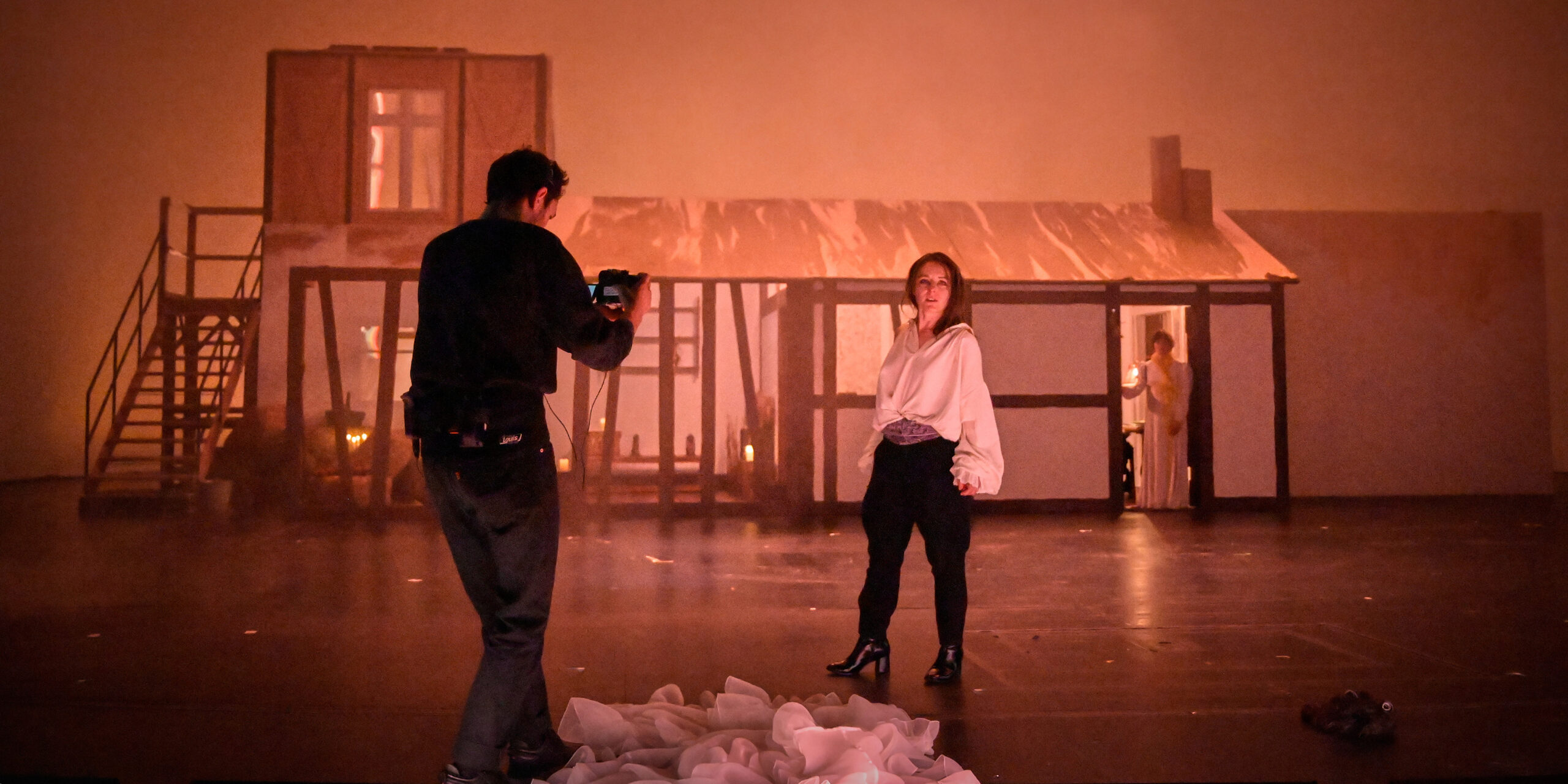
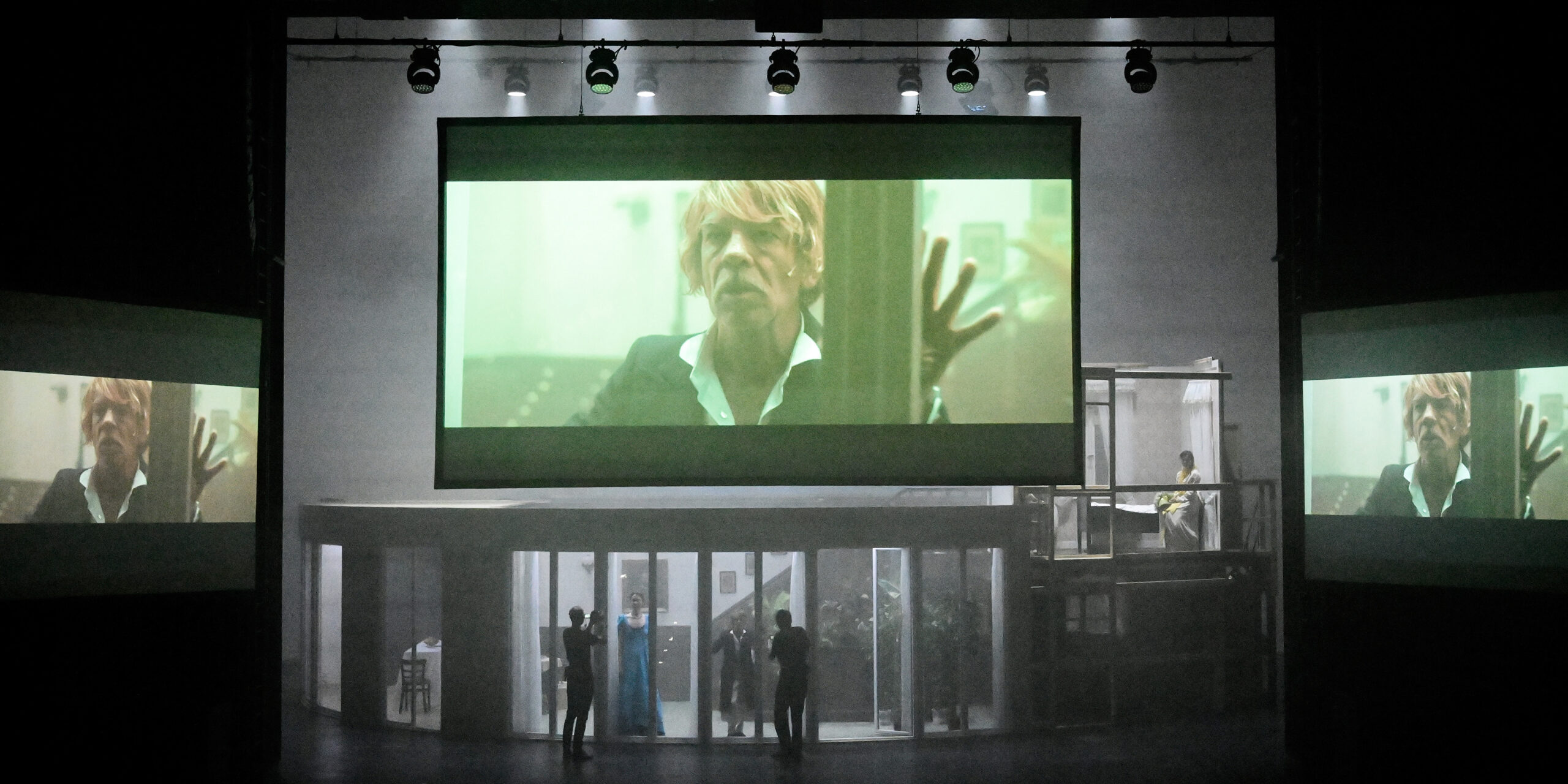
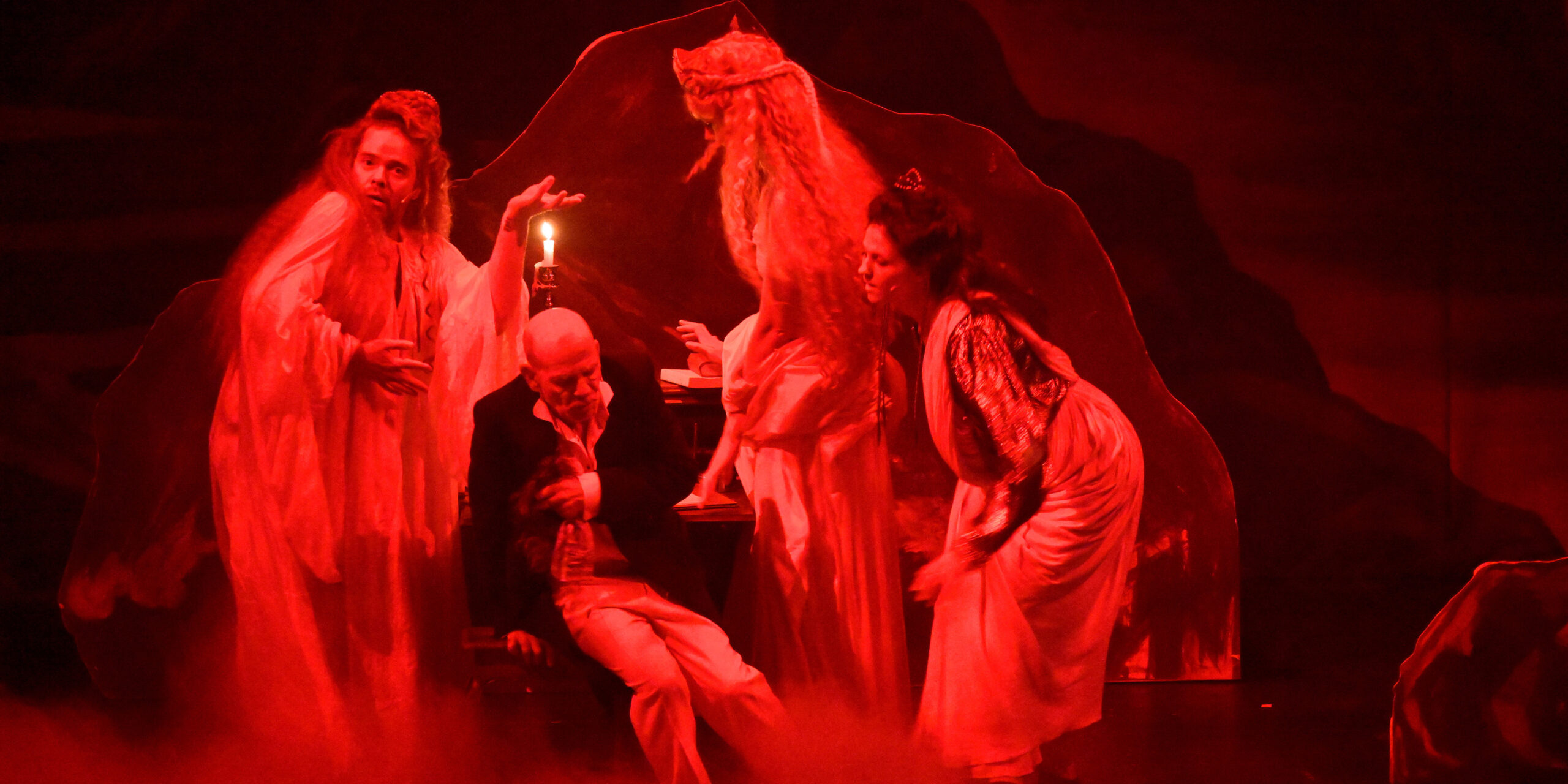
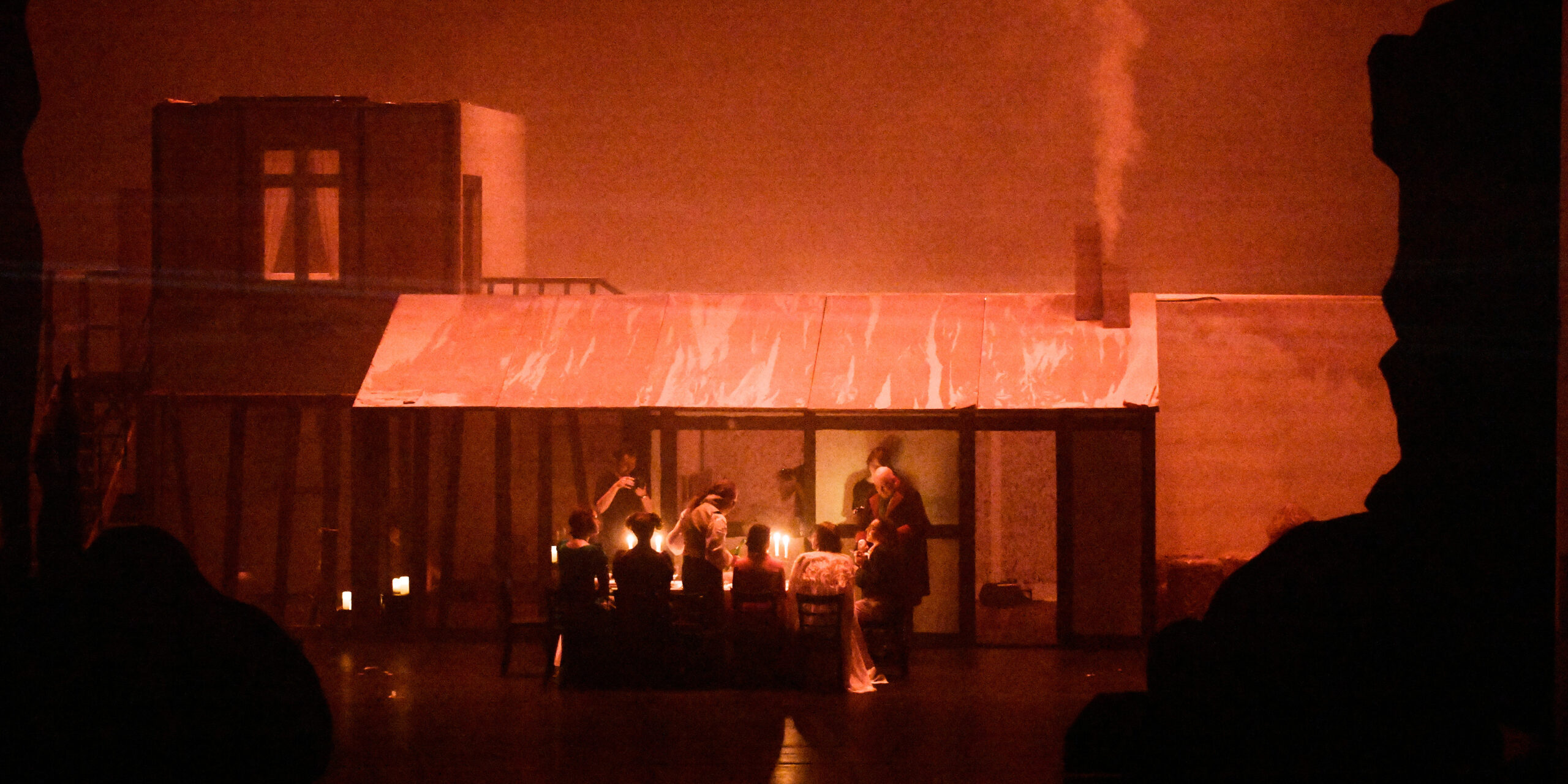
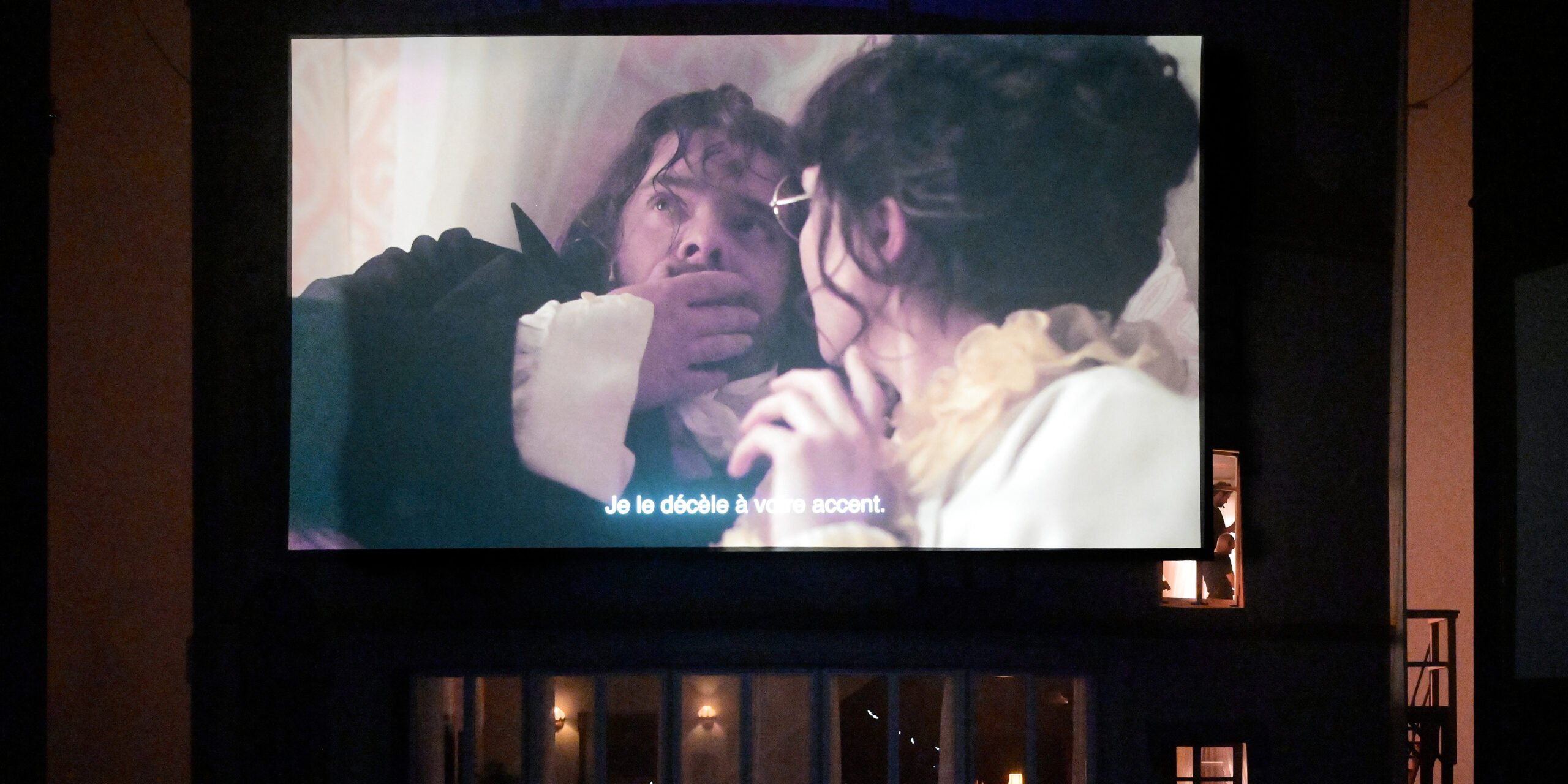
STURM UND DRANG – Geschichte der Deutschen Literatur I
by Julien Gosselin„Oh! you people of sound understandings […] exclaiming ‚extravagance, and madness, and intoxication!‘ You moral men are so calm and so subdued! […] But why should any one, in speaking of an action, venture to pronounce it mad or wise, or good or bad? What is the meaning of all this? Have you carefully studied the secret motives of our actions?”
Passion, extravagance, intoxication and madness – those were the defining emotional states in the Sturm und Drang period. The French director Julien Gosselin, famed for his extensive collage works composed of literature, film and music, will present the piece Sturm und Drang as the first part of the bold venture of retelling and reimagining the history of German literature in a series of productions stretching over several seasons.
It is no coincidence that this history started when a united Germany in the modern sense was still unthinkable, on the brink of a new era starting in the Sturm und Drang period and Weimar Classicism through to Romanticism, with literary movements scattered over different princely states. The literature of the time reflected an intellectual and cultural climate heralding the inherently ambivalent origins of a ‘national’ identity.
A carriage is drawn across the stage, stopping in the centre of Weimar outside the Hotel Elephant. Weimar was the cultural capital where Goethe, Schiller, Herder and many other greats of the time cconvened. It was the place where in 1919 the first democratic constitution in Germany was adopted by president Friedrich Ebert, in Weimar’s National Theatre. And it was the place occupied a few years later, in 1936, by the Nazis who reinterpreted the once humanistic liberal ideas in a nationalist and conservative direction to use them for propaganda purposes. Townspeople gathered outside the Hotel Elephant to receive and hail Hitler.
Victoria Quesnel as Lotte and Emma Petzert as her daughter Charlotte are driving up in front of the hotel in Goethe’s time. The bilingual mother-daughter team has arrived in Weimar to reminisce the mother’s youth. In the hotel, and in her memories, Lotte encounters many different people from Weimar, played by Hendrik Arnst, Rosa Lembeck and Benny Claessens. And meeting with lost loves, Werther, and Marie Rosa Tietjen, finally leads her to their creator Goethe himself, played by the actor Martin Wuttke.
Gosselin interlaces the central text of the early Goethe, The Sorrows of Young Werther, with parts of Thomas Mann’s reflections on the writer Goethe in the novel Lotte in Weimar, in which Goethe, grown old, meets the female protagonist by Werther’s side, decades after their stormy youthful years, both by now the great undead of German literature. Mann introduces a preface describing the sorrows of young and old Lotte, of which no mention is made in the literary history. So how do matters stand with Lotte and Werther, the archetypal couple of ill-fated love? Can Lotte escape the fate projected by the role she played in life and in fiction? Can she get away from the nightmare of memories triggered by her sojourn at the Hotel Elephant?
Not insignificantly, Thomas Mann wrote Lotte in Weimar between 1936-1939 when he emigrated from Germany due to the Nazi takeover. When he was awarded the Goethe Prize in 1949, he confessed that he was not particularly proud of his interest in Goethe, because this involved dealing with a German writer immersing himself in the German language and culture. Nonetheless, Mann inscribed himself in Lotte in Weimar as a critically-minded German author, and his reflections on fellow-author Goethe must be read as a critical review of German culture.
Julien Gosselin has, of course, no intention of immersing himself in any single language or culture. He is focusing on German literature from a temporal and cultural distance to unfold past implications, conjure the ghosts of the past and explore the inner workings of cultural memory.
The production Sturm und Drang is a first in Germany for the acclaimed French director Gosselin. His take on Michel Houellebecq’s Les Particules élémentaires in collaboration with his 2009-established theatre collective Si vous pouviez lécher mon coeur (SVPLMC) attracted an international audience at the Avignon Festival. Typically, his productions adapt great works of literature, e.g. the visually powerful 12-hour performance in French, Spanish, and English 2666, based on Roberto Bolaño’s eponymous novel, and the epic stage adaptation Mao II, Joueurs, Les Noms, based on three novels by U.S. writer Don DeLillo addressing issues of global terrorism.